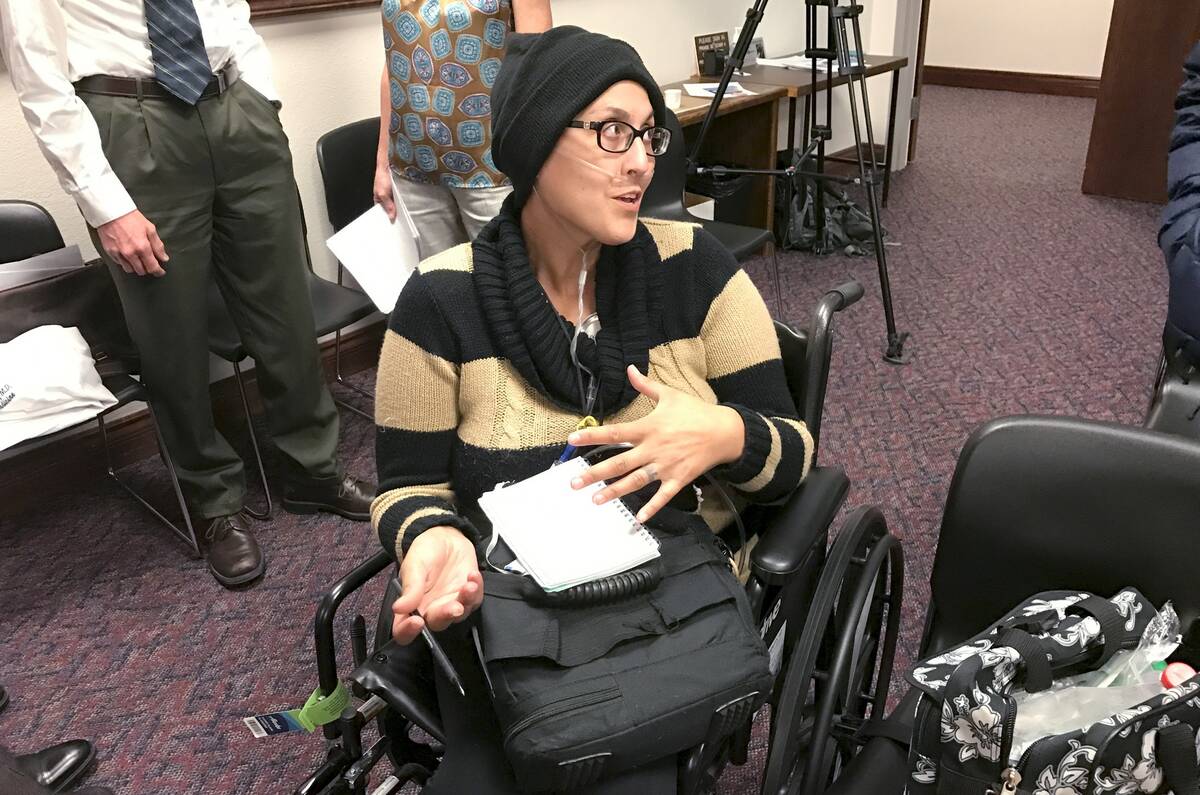VICTOR JOECKS: The fundamental problem with euthanasia
Government by compassion often leads to uncompassionate outcomes.
Last week, Assemblyman Joe Dalia, D-Henderson, presented Assembly Bill 346. It would legalize euthanasia in Nevada for adults with terminal illnesses, defined as “an incurable and irreversible condition” that will “result in death within six months.” Dalia shared about his father’s final day after being diagnosed with a terminal lung disorder.
“It was over 12 hours of misery,” Dalia said. His father “was awake and struggling and gurgling and convulsing. And he couldn’t communicate. He was suffering the entire time.”
It’s worth acknowledging the obvious. What many people with terminal diseases, including Dalia’s father, endure is heart-wrenching.
“In a state that prides itself on personal liberty and autonomy and self-determination, it strikes me as bizarre that the government of our state has any say in that final decision you make,” Dalia said. “That should have been his call to make alone.”
A couple of asides. If legislative Democrats actually cared about personal liberty, they wouldn’t push for policies such as rent control and restrictions on gun ownership.
Also, although there are dozens of criminals on death row, Nevada hasn’t executed an inmate for nearly two decades, in large part because officials can’t obtain the drugs for lethal injections. Yet this bill gives terminally ill Nevadans access to lethal drugs. That’s backward.
Now, take a look at the argument. Euthanasia advocates want to leverage your compassion into a significant policy change. But it’s not the government’s role to be compassionate.
On the surface, this may seem cold-hearted. But try to govern by compassion on an issue such as immigration. If you have compassion for economic migrants, you would throw open the border. If you have compassion for low-income Americans and illegal immigrant crime victims such as Riley Laken, you would close it.
Government by compassion is unworkable because there are often sympathetic stories on each side. We need a different way to judge between the two.
That’s where principles come in.
At stake in the euthanasia debate is this one: Is life uniquely valuable or not?
If it is, government should protect life. It shouldn’t facilitate the taking of innocent human life by legalizing euthanasia. Efforts should be made to ease suffering, even though no life will be completely pain-free.
If it isn’t, human life can be discarded like a used candy wrapper. Once it’s no longer useful, there’s no need to keep it around.
This is why legalizing euthanasia in limited circumstances often leads to its broader use. There’s no principled reason to stop, and everyone’s life has some measure of suffering. Just look at Canada. In 2023, nearly 5 percent of deaths came from euthanasia.
This is what the bodily autonomy argument overlooks. Euthanasia proponents want a change in government policy, not merely an individual’s personal situation. That will affect the entire community, undercutting a foundational principle upon which society has long relied.
Gov. Joe Lombardo has said he doesn’t support this bill, which probably dooms it for this session. But this debate is unlikely to go away until there’s resolution on the underlying issue — the value of human life.
Contact him at vjoecks@reviewjournal.com or 702-383-4698. Follow @victorjoecks on X.


















